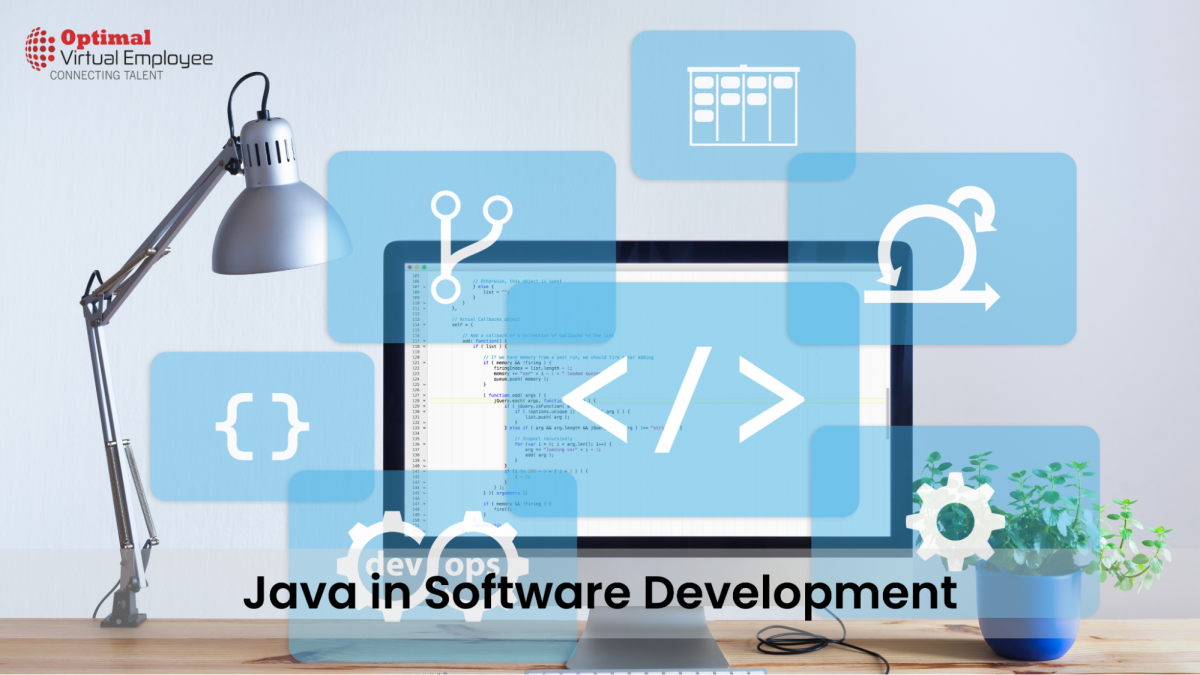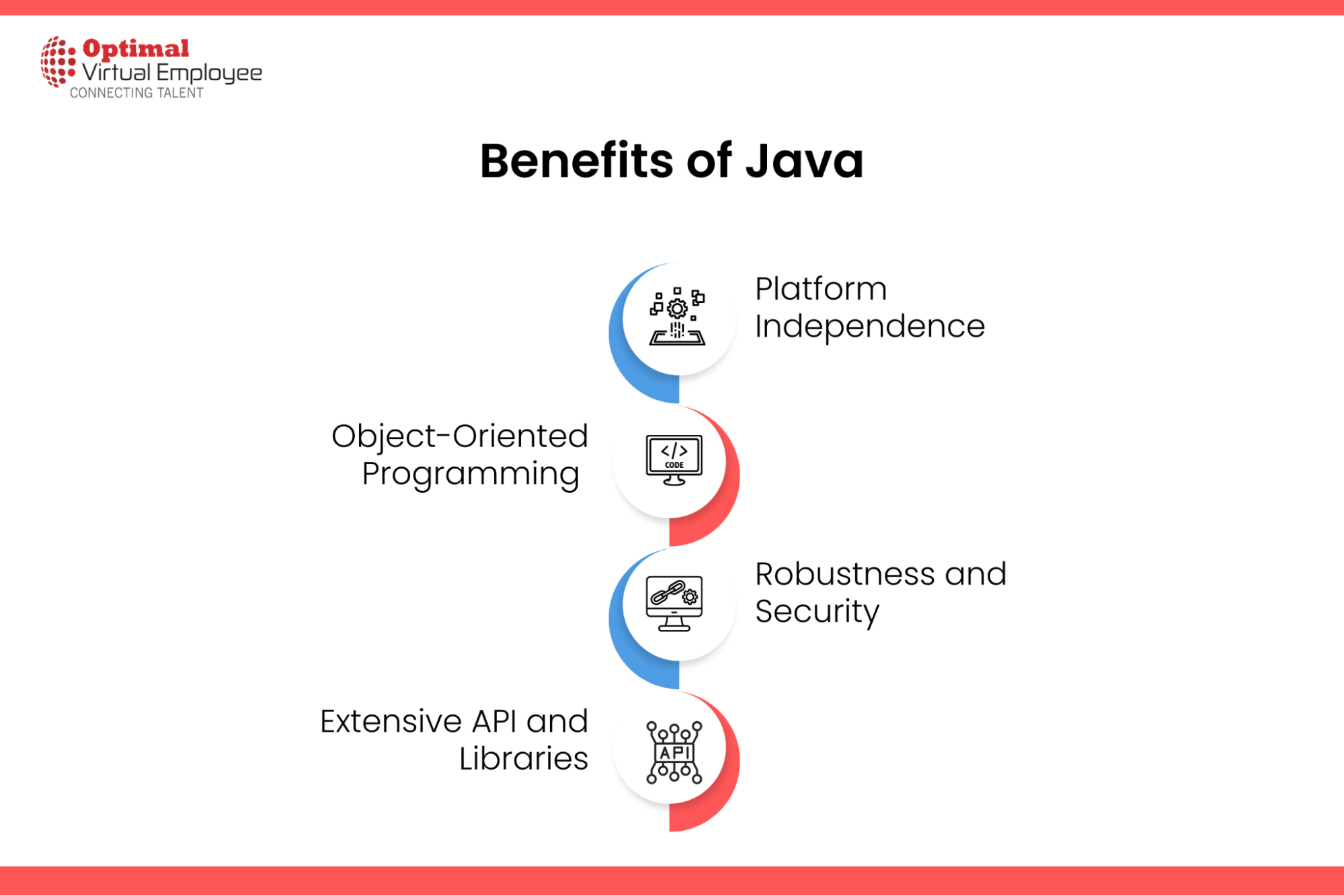Java is a powerful, object-oriented programming language known for its ability to run on different platforms and its wide range of applications in software development. It is admired for its strength, security features, and extensive collection of libraries and APIs
This versatile language is used to build applications, web services, and enterprise solutions. Due to its platform independence and reliability, Java opens up numerous career opportunities. Enrolling in Java training in Noida provides aspiring professionals with the essential skills to thrive in this dynamic field. Java training in Noida has transformed the world of software development. Embrace the potential of Java training in Noida and embark on a rewarding journey in software development.
History and Evolution of Java :
Java was created by James Gosling and his team at Sun Microsystems (now owned by Oracle) in 1995. Initially designed for consumer electronics, Java quickly gained popularity for its platform independence and “Write Once, Run Anywhere” principle. It provided developers with a portable, secure, and high-performance environment for building applications that could run on any device or operating system.
Over the years, Java has evolved with regular updates and new features. The introduction of Java 2 Platform, Standard Edition (J2SE), Java Enterprise Edition (J2EE), and Java Micro Edition (J2ME) expanded the language’s capabilities and made it suitable for diverse application domains.
Key Features and Benefits of Java:
Java’s success can be attributed to its extensive set of features and advantages. Here are some of the key aspects that make Java a preferred choice for developers:
Platform Independence:
Java programs can run on any platform equipped with a Java Virtual Machine (JVM), eliminating the need for platform-specific code. This portability enables developers to write code once and execute their applications on various platforms.
Object-oriented programming (OOP):
Java follows the principles of Object-Oriented Programming (OOP), facilitating the creation of modular, reusable, and maintainable code. Concepts like encapsulation, inheritance, and polymorphism simplify software design and development.
Robustness and Security:
Java enforces rigorous compile-time and runtime checks, reducing the occurrence of errors and vulnerabilities. Its security model includes features such as automatic memory management (garbage collection), robust exception handling, and built-in security mechanisms, enhancing the overall reliability and security of Java applications.
Extensive API and Libraries:
Java boasts an extensive collection of APIs and libraries that offer developers a wealth of pre-built components for various functions. Whether it’s database connectivity, network programming, or GUI development, Java’s comprehensive ecosystem reduces the time and effort required for development.
Efficient Multithreading and Concurrency:
Java comes equipped with built-in support for multithreading and concurrency, allowing for the efficient utilization of system resources and improved application performance. Thread management, synchronization, and thread-safe data structures simplify the process of concurrent programming.
Supportive Community and Tools:
Java benefits from a vibrant and supportive developer community that provides a wealth of resources, forums, and libraries. Integrated Development Environments (IDEs) like Eclipse and IntelliJ IDEA offer powerful tools for code development, debugging, and profiling, enhancing the development experience.
Java’s Role in Modern Software Development:
Java’s versatility makes it an ideal choice for a wide range of applications and industries. Here are some areas where Java plays a significant role:
Enterprise Solutions:
Java Enterprise Edition (Java EE) offers a robust framework for developing scalable and secure enterprise applications. It includes features such as Servlets, JavaServer Pages (JSP), Enterprise JavaBeans (EJB), and Java Persistence API (JPA), enabling the creation of high-performance web services, distributed systems, and e-commerce platforms.
Android Development:
Java serves as the primary language for Android application development. Utilizing the Android Software Development Kit (SDK) and Java APIs, developers can craft powerful and interactive mobile applications for the world’s most widely used operating system.
Big Data and Analytics:
Java enjoys widespread usage in the realm of big data processing and analytics. Frameworks like Apache Hadoop and Apache Spark, built using Java, facilitate efficient data processing, distributed computing, and the implementation of machine learning algorithms.
Web Development:
Java’s versatility extends to web development, thanks to frameworks such as Spring, JavaServer Faces (JSF), and Play. These frameworks simplify the creation of dynamic web applications, RESTful APIs, and microservices, enhancing the web development experience.
Internet of Things (IoT):
Java’s lightweight variant, Java ME, finds extensive use in programming IoT devices. Its compact size, scalability, and compatibility with embedded systems make it a suitable choice for developing IoT applications and connecting various devices.
Java is currently experiencing a surge in popularity due to its numerous advantages, and individuals can explore a wealth of opportunities in the language by enrolling in Java Online Training.
The Basics of Java:
Object-Oriented Programming (OOP):
Java is celebrated for its adherence to the principles of object-oriented programming (OOP), which emphasizes the creation of modular and reusable code. Delve into the fundamental OOP concepts in Java, including classes, objects, inheritance, polymorphism, and encapsulation.
Platform Independence via the Java Virtual Machine (JVM):
Discover the distinctive feature that distinguishes Java — its capacity to operate on any platform through the Java Virtual Machine (JVM). Gain insights into how the JVM fosters cross-platform compatibility and provides a secure execution environment for Java applications.
Java Development Tools and Frameworks:
Integrated Development Environments (IDEs):
Explore well-known integrated development environments (IDEs) like Eclipse, IntelliJ IDEA, and NetBeans. These tools offer developers robust capabilities for writing, debugging, and testing Java code. Evaluate the features and advantages of these IDEs to choose the one that aligns with your requirements.
Java Development Kit (JDK):
Comprehend the significance of the Java Development Kit (JDK) and its constituent parts in Java development. Learn about the Java Compiler, Java Runtime Environment (JRE), and other indispensable tools bundled with the JDK.
Java Frameworks:
Uncover the expansive realm of Java frameworks designed to simplify development tasks and encourage best practices. Explore renowned frameworks such as Spring, Hibernate, JavaFX, and Apache Struts, and grasp how they facilitate the creation of robust and scalable applications.
Java Community and What’s Ahead:
Java Community and Available Resources:
Dive into the dynamic Java community, a treasure trove of extensive resources, forums, libraries, and open-source projects. Navigate through well-known websites, blogs, and communities that offer valuable insights and support for Java developers.
Java in the Cloud and the Rise of Microservices Architecture:
Explore how Java is embracing the realm of cloud computing and microservices architecture. Take a closer look at Java frameworks such as Spring Boot and cloud platforms like AWS and Azure, which facilitate seamless deployment and scalability of Java applications.
Future Trends and the Evolution of Java:
Engage in discussions about the future of Java and its ever-evolving ecosystem. Explore emerging trends, including modularization through the Java Platform Module System (JPMS), the integration of Java with containers and Kubernetes, and the burgeoning landscape of serverless computing.
Conclusion
Java’s Strength, Flexibility, and Broad Ecosystem have established it as a cornerstone of contemporary development. Its ability to run on various platforms, its adherence to the object-oriented approach, and its vast array of tools and frameworks make it the perfect option for crafting a wide range of applications. As Java persists in evolving and adjusting to fresh technologies and trends, it stands as a dependable and forward-looking language for developers. Embrace Java’s potential and open up a realm of opportunities in your development journey.










